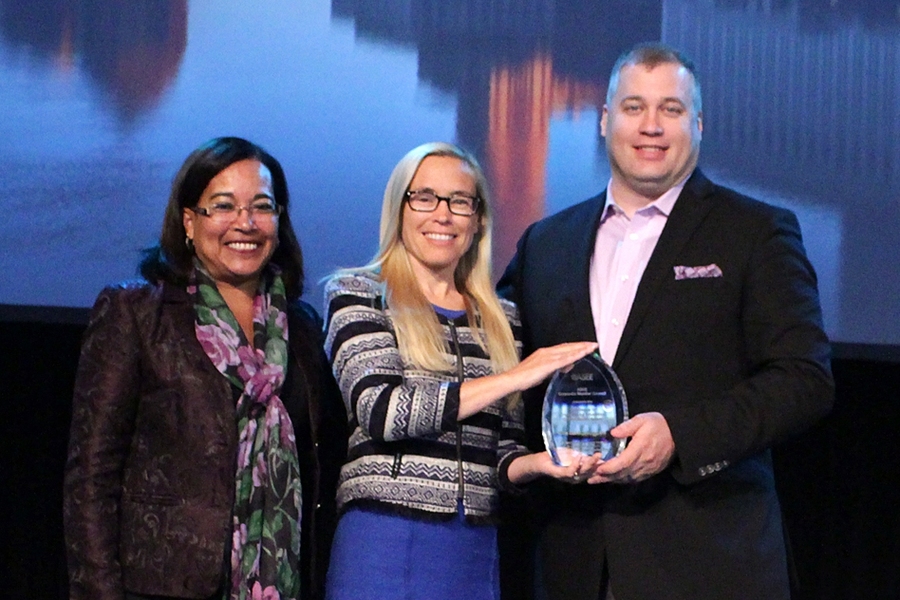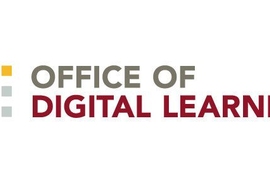In collaboration with Boeing and edX, MIT has been honored with the 2017 Excellence in Engineering Education Collaboration Award by the American Society for Engineering Education (ASEE).
The team was chosen for its design and development of a new four-course online professional certification program called Architecture and Systems Engineering: Models and Methods to Manage Complex Systems. The curriculum explores state-of-the-art practices in systems engineering and also demonstrates the value of models in enhancing system engineering functions and augmenting tasks with quantitative analysis.
The program launched last September and ran through March. Nine faculty members from MIT and more than 25 industry experts from Boeing, NASA, IBM, Apple, General Electric, General Motors, and other companies developed content for the courses. More than 1,600 professionals passed the four courses and earned a certificate in the first run of the program. Currently in its second run, the program is now accepting enrollments for September.
“For companies engaged in the development of complex systems, the ability to track the architecture over time is a core competence,” says Bruce Cameron, director of the System Architecture Lab at MIT and faculty director of the program. “As the complexity of the products we produce today increases, engineers face critical challenges managing these systems in the rapidly evolving environment around them. This program prepares the workforce to better face these challenges.”
The program is delivered on the edX platform, with integrated peer-to-peer assessments, group projects, discussion forums, polls, and surveys. In course feedback on the program, more than 93 percent of survey respondents rated the instructors and materials as “good,” “very good,” or “excellent”.
“For my client base, time is the most valuable asset they have. More than money,” explains Michael Fletcher, president of Fletcher Martin Corporation, who earned his professional certificate in March. “When you have a project that's squished into 20 weeks from planning to final completion and there’s a change, a ripple effect happens. Finding ways to minimize that ripple effect and conserve time and money is invaluable. [This program] really built a structured way of thinking that I didn't have before, and brought up a whole new set of ideas. I can't wait to get some models built.”
The development of the program can be traced back to the Space Act Agreement of 2016, when Boeing and NASA joined forces to strengthen engineering and technical leadership capabilities in the United States through innovative educational initiatives. They enlisted MIT and edX to help them create the program. MIT then built a consortium to inform the design of the program, which includes General Electric, Raytheon, Ford, MITRE, and General Motors.
“This partnership with MIT, edX, and NASA blends the expertise of industry, government, and a world-class academic institution to provide a unique educational experience in systems engineering, an area of critical importance to Boeing,” said Greg Hyslop, Boeing's chief technology officer and senior vice president of Engineering, Test and Technology. “That’s a win-win-win for all of us involved, and for the future of aerospace innovation as it’s now applied to learning.”
To earn a certificate, students must complete four courses: Architecture of Complex Systems; Models in Engineering; Model-Based Systems Engineering: Documentation and Analysis; and Quantitative Methods in Systems Engineering. Upon completion, participants are expected to understand and analyze complex systems, perform model management, frame systems architecture as a series of decisions, articulate the benefits and challenges of model-based systems engineering, and demonstrate a comprehensive knowledge of the key aspects of systems engineering.
“The market already offers many educational opportunities around specific tools and new modeling languages. We wanted to offer an overview on why and when to use the tools, in a format that fits into 4-5 hours per week to be compatible with a full-time job,” Cameron says. “The great challenge of system engineering is to foster communication across disciplines — this program builds in a variety of domain examples. ”
Lectures include architectural representations ranging from electrical layout to CAD drawings to functional block diagrams. “That spread is very intentional from our perspective,” Cameron says.
Anant Agarwal, the CEO of edX and an MIT professor, says the success of the program “is a result of edX, MIT, and Boeing’s, combined commitment to providing flexible, highly-engaging digital offerings for professional education at scale and at a fraction of the traditional cost.”
“Together, we are reinventing the way that practicing engineers of hugely complex systems gain access to the new thinking, processes, and tools that help them become more efficient,” Agarwal says.
ASEE, the award sponsor, created the Excellence in Engineering Education Collaboration Awards to demonstrate best practices in collaboration that enhance engineering education. The award competition is open to all ASEE Corporate Member Council organizations for their development of collegiate-level education programs and pre-college programs that generate curiosity and engage students in STEM education.
The award was presented at the 2017 ASEE Annual Conference in Columbus, Ohio, during the Industry Day Plenary Session on June 27.









